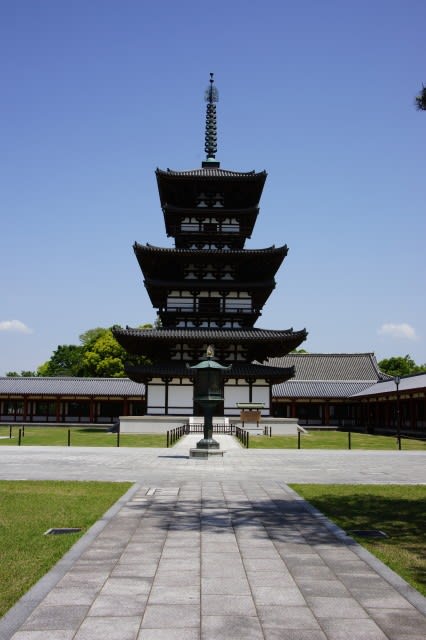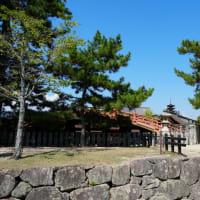The following is from the serial column of Yoshiko Sakurai, which brought the April 29 issue of weekly Shincho to a successful conclusion.
This article also proves that she is a "national treasure" as defined by Saicho and a supreme national treasure.
It is a must-read not only for the Japanese people but also for people around the world.
The Japan-U.S. Summit and the Challenges Faced by the Prime Minister
President Biden and I had something in common, and we talked about each other's lives without even touching our hamburgers at lunch.
The expression on Prime Minister Yoshihide Suga's face was one of relief and joy as he recalled the meeting.
On April 17, the joint statement released following the summit meeting clearly stated the "importance of peace and stability in the Taiwan Strait." Also, it noted that Japan had "resolved to strengthen its defense capabilities" and that the U.S. had confirmed "the defense of Japan by all means, including nuclear weapons.
In an article that Suga wrote for the Wall Street Journal on April 14, he mentioned climate change and other issues as his aspirations for the meeting just before the summit. Still, he did not mention China or security, and I was concerned about the future of the conference.
However, when the summit was over, the prime minister expressed his intentions in unambiguous terms regarding China's threat and countermeasures.
This summit at the Corona disaster is the most important summit to date.
The summit meeting, the joint statement, and the speech at the Center for Strategic and International Studies (CSIS) that preceded it reveal the prime minister's determination.
The importance of peace and stability in the Taiwan Strait has already been affirmed at the so-called "2+2" strategy meeting between the two ministers of foreign affairs and defense. Still, the reiteration of the importance of peace and stability in the Taiwan Strait in the joint statement adds further weight to the pledge made by Japan and the United States regarding the future of Taiwan.
On top of that, Prime Minister Kan promised to strengthen Japan's defense capability. Strengthening defense capability is the most urgent and vital issue for Japan.
Due to China's extraordinary military expansion, the military balance is overwhelmingly in favor of China and against Japan.
Prime Minister Suga cut into it.
In his speech at CSIS, he said. "We have no intention of making concessions on matters related to sovereignty, democracy, human rights, the rule of law, and other universal values.
China's threats
The prime minister further said that China's strengthening of its military power continues to attempt to unilaterally change the status quo in the East and South China Seas.
"Even in this security environment, we will make our efforts to protect the lives of our citizens and their peaceful livelihoods, and we will enhance our ability to respond.
"We will further strengthen our deterrence and response capabilities with our ally, the United States.
"We will take the Japan-U.S. alliance to new heights. It is an essential responsibility of mine."
The Biden administration chose Suga for the first face-to-face meeting because it expects Japan to take military cooperation to a different level in security.
He wants Japan to stop relying on the U.S. and to contribute to regional security, peace, and stability, while the U.S., as an ally, will do its best to defend Japan.
Suga has responded boldly to the U.S. request.
China, however, is very much opposed. On April 17, the World Times, the voice of the Chinese Communist Party, published an editorial in which it disparaged Japan as follows, saying, "(US-Japan relations) In terms of diplomacy, the character of master-slave is strong." "(Japanese diplomacy) is only at the level of semi-sovereignty."
They likened the U.S.-Japan alliance to the Tripartite Pact, saying, "It could turn into an axis that could fatally destroy peace in the Asia-Pacific.
The editorial's conclusion is interesting.
The editorial concluded interestingly, "I advise Japan to stay away from the Taiwan issue. In other matters, Japan can play with its diplomatic skills and balance the two sides, but if it gets involved in the Taiwan issue, it will bring disaster on itself. The deeper you get involved, the greater the price you will pay."
He is threatening that there will be no compromise on the Taiwan issue and that Japan should be prepared.
However, Prime Minister Suga has also declared that he will not yield to this kind of threat by China and will not compromise.
That is the meaning of a series of statements in the United States.
Then, what about the United States?
As is well known, the eye that sees China of the United States is very severe. There is not much room for political compromise.
The strict awareness of human rights among Secretary of State Antony Blinken and other ministers in the Biden administration has become more apparent with time.
Some criticized Mr. Blinken's confrontational remarks at the Alaska talks as not being a diplomat. Still, such a surprisingly straightforward criticism shows the straightness of the people at the heart of the U.S. administration. I got a strong impression.
They will probably not compromise either. If this is the case, the relationship between the U.S. and China will become more severe day by day.
The conflict of values will spill over into all areas, and improvement in relations is unlikely in the foreseeable future.
On the other hand, no one wants a military conflict or war.
The answer to the situation at hand is that, of course, all the countries concerned prepare for the outbreak of an emergency in this tension.
Ambition for Global Domination
On the 14th of this month, President Biden announced the withdrawal from Afghanistan.
He aims for a complete withdrawal by September to concentrate his efforts on China's most significant threat.
Mr. Biden has shifted the biggest threat to the United States from terrorist forces to China.
Since the Bush administration in the wake of 9/11, the U.S. has identified terrorism as its primary threat.
Before that, the U.S. considered China to be its strategic rival.
Now, for the first time in 20 years, China has been positioned as the greatest threat to the United States.
During the same period that the U.S. focused on terrorism, China continued to expand its military and became a formidable power.
As a result, even the United States is being overwhelmed by China's military power.
In the latest Foreign Affairs issue (May-June 2009), Michel Flournoy wrote an article titled "The U.S. Military is in Danger of Losing Its Edge.
Ms. Flournoy is a woman who built strategy at the Pentagon.
The article is quite reflective in its analysis of whether the U.S. can stop the growing strength of the Chinese military and the Chinese Communist Party's ambitions for world domination.
She warns.
She warns that the U.S. has come close to changing its strategy but has not yet reached its implementation stage.
When China moves to take the Senkakus or Taiwan, Japan, and the U.S. must prevent it.
Under such circumstances, the Japan-U.S. summit meeting was held, and that Prime Minister Suga made his comments.
The Japanese people, the government, and Japan must think about what this means in concrete terms.
If Japan is a sovereign nation, it must use the power of the Japan Coast Guard and the Self-Defense Forces to deter China, regardless of whether the strategies and tactics of the U.S. military are effectively deployed or not.
It must make prime Minister Suga's promise to strengthen Japan's defense capability with this in mind.
If this is the case, Kan needs to amend Article 25 of the Coast Guard Act, make enemy base attacks possible, substantially increase the defense budget, increase the number of Self-Defense Force personnel, and begin a significant upgrade of equipment general.
Realizing these things one by one would be the way to strengthen the defense capability promised at the Japan-U.S. summit.
It said that Suga's characteristic is that once he makes a decision, he implements it.
I hope that he will boldly pave the way for Japan to survive in the new and severe international situation.



















